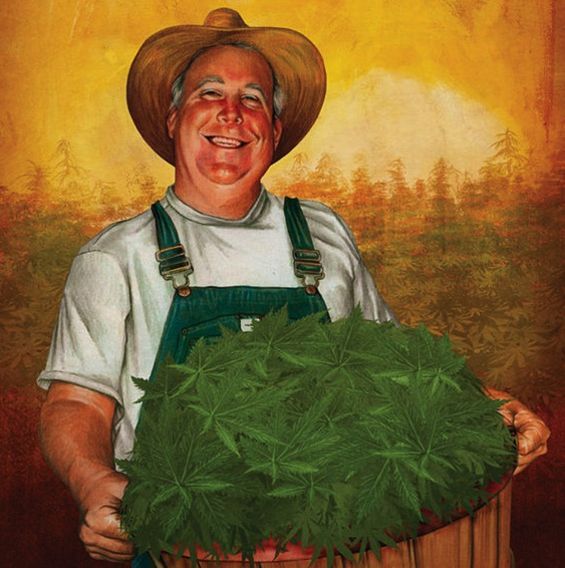Having already been introduced on the Senate floor, Colorado SB13-241 was heard by the Senate Agricultural Committee on April 10, 2013, and passed with enthusiastic unanimity.
Testimonials were intelligent, articulate, and persuasive. President of the Rocky Mountain Farmers Union, Kent Peppler, Deputy Director of the Colorado Department of Agriculture, Mitch Yergert, and experts Erik Hunter, Director of Research and Development at Hemp Cleans, Chad Pfitzer, agrologist, Adam Dunn, owner of HoodLab, Josh Rabe and John Patterson, founders of a hemp building materials business, Ben Holmes, owner of Centennial Seeds, Robert Kane, President and CEO of Phytiva, Jennifer Cappa, PhD candidate at CSU, and Ryan Loflin, southeast Colorado farmer, educated the room on a wide variety of issues and possibilities for hemp in Colorado.
Kent Peppler has had people stop him on the road to ask him about when and how they can grow the crop. He expressed support from RMFU and said he’d run into a spokesperson from Colorado Farm Bureau on the way to the committee meeting who stated that CFB is also in support and asked him to report that to the committee. He encouraged the state legislators to put pressure on the federal government to change their policies regarding hemp.
Mitch Yergert discussed the 7-member Industrial Hemp Committee, which includes the three directors, Jason Lauve, Erik Hunter, and Lynda Parker of Hemp Cleans who will work in cooperation with the Department of Agriculture. This committee has been tasked with developing industrial hemp rule-making per SB13-241.
Erik Hunter provided an update on the phytoremediation pilot program, including details of the initial four-plant study and upcoming larger scale studies. Future studies include a larger scale mine waste evaluation and a study of fire-scorched soil, pursuant to a request made by Senator Mark Udall. Erik offered information regarding the possible disposal methods for contaminated plant material.
Chad Pfitzer spoke about the use of GPS technology and its application to agriculture, specifically how it can be used in the development of varieties of hemp suitable to Colorado’s climate. He said now is a perfect opportunity to combine the two important aspects of agriculture, those being seed development and data acquisition technology.
Adam Dunn displayed clothing and a handbag made of hemp fabric. He expressed he would like to be manufacturing with Colorado-grown hemp. Adam, originally from New York, moved to Amsterdam where he lived for many years retailing hemp clothing and other textiles. He heard about pro-hemp activity in Colorado and chose to move here and begin his business again in Denver. He demonstrated that he is just one of many people who would relocate here to help build a hemp industry.
Josh Rabe and John Patterson announced the founding of their hemp building materials business and talked about the importance of being able to use hempcrete and other hemp materials in fire-prone areas. There is great interest in these fire-resistant materials and John and Josh are currently replacing homes in the High Park fire area.
Ben Holmes talked about the importance of Colorado-developed seed sources and emphasized the importance of Colorado State University involvement. Senator Matt Jones, who chaired the meeting, reflected on a conversation he’d had with Ben Holmes several years prior about the importance of hemp agriculture and commented that Ben had clearly been “on a mission,” and expressed that it was remarkable that they were sitting at the table discussing the topic now.
Ryan Loflin, who has traveled the state to gain understanding of the topic, when asked how he learned about it, mentioned he’d been encouraged by Hemp Cleans. He is eager to plant and participate in the launch of a new crop and industry
Jennifer Cappa discussed her phytoremediation program and touted hemp as the ideal phyoremediation plant.
Robert Kane, of Phytiva, delivered an impassioned testimony regarding the importance of hemp agriculture to Colorado and provided specific calculations relative to the demand for hemp products and the economic development opportunities for both agriculture, processing, and retail. He translated these numbers into a forecast on the positive impact on job creation through the development of a hemp industry.
The bill will be heard in the Appropriations Committee and the House Agricultural Committee soon. We expect strong support throughout the process.




